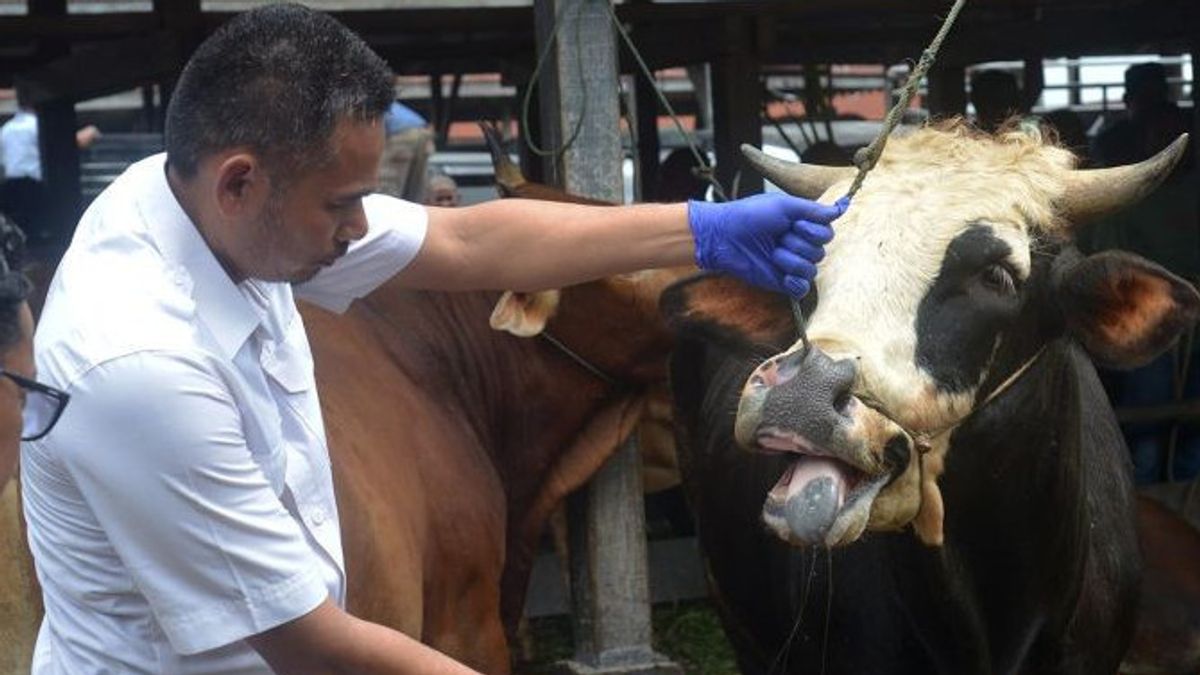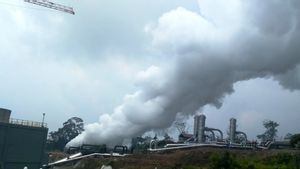JAKARTA - Professor of the Faculty of Animal Husbandry, University of Padjadjaran, Roostita L. Balia, said that the treatment and safety of food products from livestock infected with FMD must be carried out in several stages if it is to be used as a national meat stock.
Roostita emphasized that meat infected with the FMD virus must be thoroughly cooked before consumption. Although it is safe for consumption, he continued, meat from sick cows has undergone a process of hyaline degeneration or substance damage.
He said the tips for handling meat and offal from traditional markets are that the meat should not be washed if it is not processed immediately.
Before cooking, the meat is boiled for 30 minutes using hot water. Before the meat is frozen in the freezer, it is best to boil it before 24 hours have passed.
If you buy offal, he said, then choose offal that has been boiled, but if you get raw offal, it should be boiled for 30 minutes. Roostita also suggested processing animal meat with FMD into processed products such as meatballs and sausages.
"Regions that are isolated or experiencing lockdown, where meat products are abundant, so that meat can be sold outside the region, home-processed meat products must be made such as meatballs, sausages, nuggets, jerky and shredded. So that they can be traded outside the region," said Roostita, quoted from Antara, Saturday 2 July.
Meanwhile, Professor of Immunology at the School of Veterinary Medicine and Biomedical (SKHB) IPB University I Wayan Teguh Wibawan said the presence of the virus was in the bone marrow, lymph nodes/limpo glands, and the inactive virus in meat that had been cooled to 20 degrees Celsius for 24 hours was carried out by masturbation. This process causes a decrease in the pH of the meat below PH 6.
Deputy of the Permanent Commission for Livestock at the Indonesian Chamber of Commerce and Industry (Kadin) Yudi Guntara Noor suggested that cows exposed to the FMD virus be used as a buffer stock for the government's meat.
He said the need for an assignment by the National Food Agency to Bulog in collaboration with Slaughterhouses (RPH) which has the infrastructure for handling livestock slaughtering under the condition of PMK.
This form of assignment, said Yudi, was carried out to reduce the burden of economic risk on farmers affected by PMK. He also said that Bulog is still importing buffalo meat from other countries that have not been free from FMD, namely from India, around 80 thousand to 100 thousand tons per year. However, Bulog ensures that the imported meat is free from PMK based on the results of laboratory tests.
Yudi said several abattoirs in Indonesia are capable of hedging the removal of glands or glands, have a slaughter capacity of 300 heads per day, and sufficient cooling capacity to store meat.
"If this is done by Bulog, it will become a movement for a contingency plan," he suggested.
The English, Chinese, Japanese, Arabic, and French versions are automatically generated by the AI. So there may still be inaccuracies in translating, please always see Indonesian as our main language. (system supported by DigitalSiber.id)













